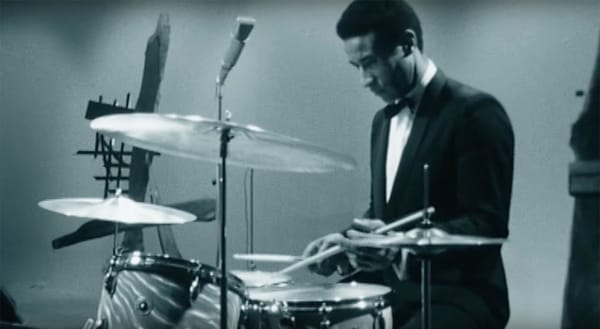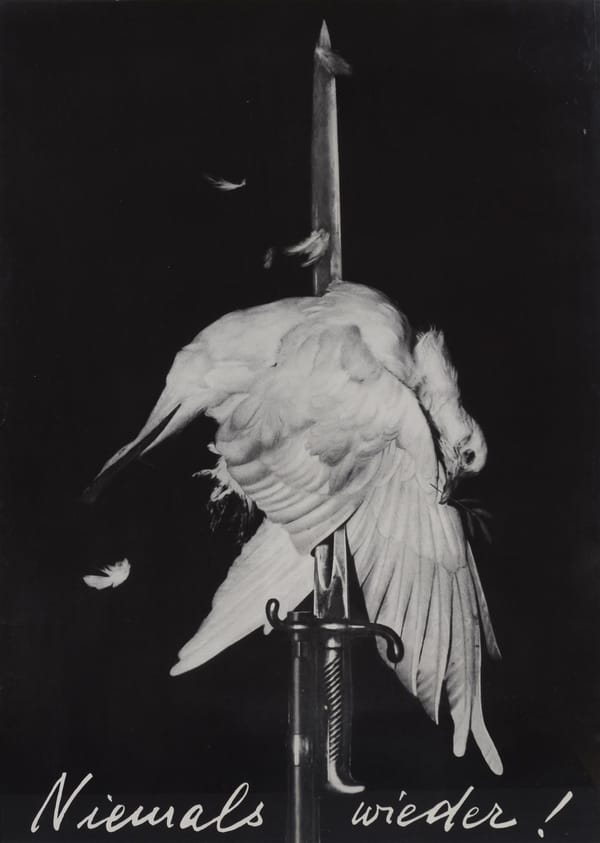What Christians Can Learn from Satanists
on colonialism, Christendom, and liberation theology

The Scream (2016) by Kent Monkman
1.
You have heard it said, “Make disciples of all nations,” but I say, don’t presume to know better than others what is good for them; rather, learn from all nations.
Thanks for reading Jack’s Substack! Subscribe for free to receive new posts and support my work.
2.
Through violence, Christians have imposed our order on indigenous peoples. When we weren’t killing them and running them off their land, we kidnapped their children and brought them up in the ways of Christendom. We forced them to memorize the Bible. We “Christianized” them. We “made disciples” of them. We suppressed their traditions, histories, languages, and beliefs, and imposed on them a belief system, a language, and a way of life completely alien to them. As we taught them to revere Jesus as their Lord and Master, so their faith constituted submissiveness to colonial power. Christianity was, has been, and continues to be a tool of colonization, of subjugation and oppression.
3.
The anthropology of colonial Christianity reads humans as slaves, as either slaves to sin or slaves to God. The latter slavery is called freedom, but it is nonetheless a life of submission to God’s will, which in practice means submission to Western power. Always it is “Not my will, but yours O God,” and that prayer is coupled with the Pauline ethic of submitting to the governing authorities, who are, Paul said, established by God (Rom. 13).
4.
Still today, all over the world, people are learning to submit to the yoke of Christ, which in practice is not a yoke of freedom but of bondage. Through Christianity, they learn to submit to the power of the West. They learn not to hope for the kingdom of God here and now, but to place their hopes in the hereafter, in heaven. They learn not to mind the one who kills the body, for they are taught to fear hell as the worst of all evils. They learn not to resist the powers that be, but to submit to them as to God. God is not their liberator but their Master. The Christian life is a life of subservience.
5.
Permeating colonial Christianity is the notion that God is our Master, that we are subject to God’s will. We in ourselves do not matter. Only God matters. We matter insofar as we matter to God. We matter as children of God, as creatures made in the image of God. We are assured we matter a great deal to God, but always we are to submit to the dictates of our Lord and Master. Earth is the private property of God. Being a creature of the earth means being obliged to the will of God’s property.
6.
The alternative to slavery to God is slavery to sin, which is disobedience. Disobedience means “leaning on our own understanding.” For indigenous peoples, it means maintaining their own traditions and languages, which colonial Christianity reads as pagan and thus alien to God.
7.
Disobedience leads to hell, which is an eternity of torture. Nothing on earth can compare to the horrors of hell, and so nothing on earth can matter as much as obedience to God. Hell is the great leveler, the ultimate trump card, the end all be all of colonial Christianity. Because nothing on earth matters so much as avoiding hell, nothing on earth matters. Climate change doesn’t matter. Injustice doesn’t matter. Politics doesn’t matter. The only thing that matters is, where will you go when you die? Will you go to heaven because you were obedient to God, or will you go to hell because you relied on your understanding?
8.
Colonial Christianity teaches subservience. It stands opposed to any notion of self-actualization, self-empowerment, self-reliance, or independence. “I must decrease so that He may increase” (John 3:30). Colonial Christian anthropology is humanity diminished.
In order to adhere to a Gospel of freedom, Christians need to learn a new theology, and unlearn the old. We need an inversion of our Western-Christian ideals. We need a new emphasis in Christian theology, one we can find in a tradition that explicitly inverts Christian principles—the Satanic tradition.
9.
The inverse of Christianity is Satanism. Satan is the adversary, the other-than-God. Originally, it was hasatan, the satan. In the book of Job, the satan “roams to and fro” (Job 1:7). God doesn’t know of his whereabouts. The satan reasons independently from God, and challenges God. Modern Satanism challenges monotheism altogether via atheism.
For modern Satanism, as articulated by Aleister Crowley, “Do what thou wilt shall be the whole of the law.” Satanists say “Hail Satan,” but they often follow it by saying, “Hail Thyself.” Satan is not a Master whose laws Satanists submit to, Satan is the symbol of the Anti-Master, the symbol of rebellion, of self-assertion and self-empowerment. Where the colonial God demands obedience, Satan encourages independent discretion. Satanists have no masters, for Satan is not a master but a position.
“No gods, no masters.” “Non Serviam.” These are principles of Satanism. They are principles which fundamentally contradict any subservience or submission to alien powers. They are principles of self-determination. As such, they are principles of liberation.
10.
While in practice modern Satanism has often manifested in a libertinism that privileges the individual will over the collective, an important caveat of Aleister Crowley’s principle of the will is his corrective, “Love is the law, love under will.” Love is the counterbalance to laissez faire willing.
Ironically, Christianity and Satanism converge at the point of love. But for colonial Christianity, love is subordinate to God (it goes “God is love,” but not “Love is God”). And for Satanism, love is subordinate to the will.
What would be the liberation of love?
11.
You have heard it said, “Lean not on your own understanding,” but I say, rely on your understanding.
I do not mean this in an individual sense—as in, believe no one but yourself—but in a general sense. Rely on the human ability to question, test, experiment, and discover, together.
12.
The people who have shaken off an alien power and have come to determine their own lives have been liberated and are free.
13.
If Christianity wants to be a religion of freedom, it must unlearn the Gospel of obedience, where God is Master and we are slaves, and must learn the principle of freedom as self-determination.
If there is any hope for a Christianity of freedom, it is in liberation theology. If it is true that “where the Spirit of the Lord is there is freedom” (2 Cor. 3:17), then the Gospel must be about the actual, material liberation of people here and now.
Thanks for reading Jack’s Substack! Subscribe for free to receive new posts and support my work.



